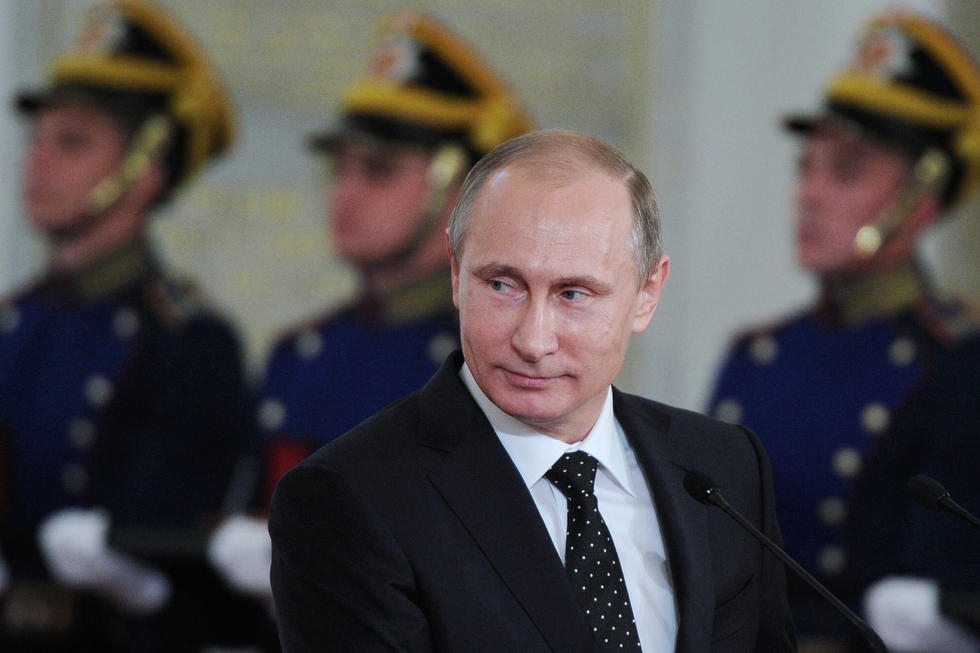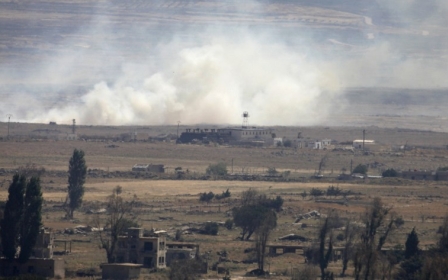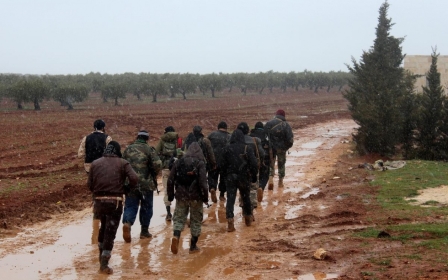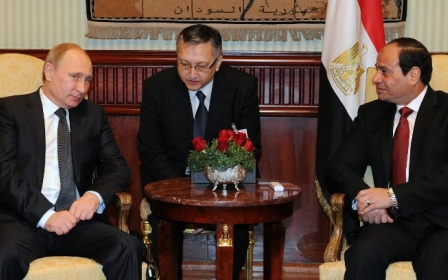Putin says willing to 'push' Syria's Assad on reform

SAINT PETERSBURG - Russian President Vladimir Putin said on Friday he is ready to "push" his Syrian counterpart Bashar al-Assad towards introducing reforms in the war-torn country, while vowing to continue to support his ally.
"We are ready to work with Assad so that he engages in a process of political change," Putin said at the Saint Petersburg International Economic Forum.
"We are ready to push President Assad so that he engages in discussions with the 'healthy' opposition with a view towards political reforms. It is totally feasible," he said.
Russia hosted talks in April between the government and members of the domestic, Damascus-tolerated opposition, but the absence of key exiled opposition groups meant there was no progress in resolving the four-year conflict.
Meanwhile, he vowed Moscow would continue to support the government, claiming he feared Syria would follow in the steps of Libya or Iraq should Assad leave power.
"The United States supports Iraq, supports ... the army,” Putin said. “With two or three strikes IS has captured so many arms ... (that) now IS is armed better than the Iraqi army. And all this is happening with the support of the United States.”
He stressed that the West should refrain from intervening militarily in Syria.
"We are ready to work with the president to ensure a path towards political transition so as to ... move away from an armed confrontation. But that should not be done with the use of force from the outside," he said.
The Russian president meanwhile called on the West to make "supplementary efforts to fight the absolute evil, which we believe is the Islamic State's fundamentalism".
Syria's war has killed more than 230,000 people, according to a monitoring group, and forced around half the population to flee their homes.
A recent study by the Syrian Network for Human Rights suggests that Assad forces are responsible for the vast majority of civilian deaths in the Syrian civil war. In a count of civilian deaths in the conflict in December 2014, the Syrian army was responsible for some 85 percent of deaths, and IS was responsible for just over five percent, according to the study.
The conflict began in 2011 as a peaceful movement demanding political change, but later morphed into an all-out war with multiple fronts after the Syrian government unleashed a brutal crackdown on dissent.
Middle East Eye propose une couverture et une analyse indépendantes et incomparables du Moyen-Orient, de l’Afrique du Nord et d’autres régions du monde. Pour en savoir plus sur la reprise de ce contenu et les frais qui s’appliquent, veuillez remplir ce formulaire [en anglais]. Pour en savoir plus sur MEE, cliquez ici [en anglais].




